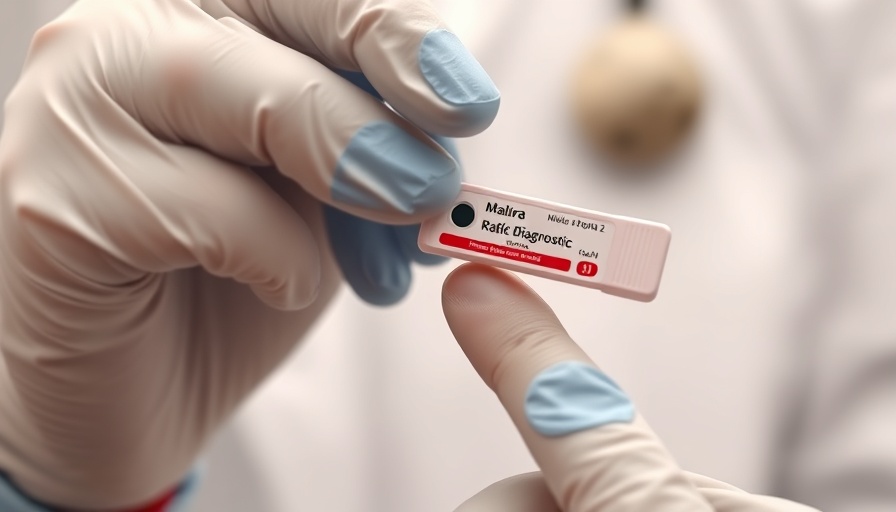
Understanding the Silent Danger of Diabetic Foot Ulcers
Diabetes poses numerous challenges, and one of the gravest threats to individuals living with this condition is diabetic foot ulcers (DFUs). These open sores can significantly affect mobility and overall quality of life, often leading to severe complications if not properly managed. The reality is that DFUs result from a myriad of factors including poor circulation and nerve damage, both of which are common among diabetics. Understanding these ulcers is the first step towards effective prevention and management.
What Causes Diabetic Foot Ulcers?
Diabetic foot ulcers arise primarily due to the combination of peripheral neuropathy and poor circulation. When blood sugar levels remain uncontrolled, the body sustains damage that affects the nervous system and blood vessels. This leads to decreased sensation in the feet, making it hard for individuals to recognize small injuries before they escalate. In tandem, decreased blood flow restricts healing capabilities, rendering even minor abrasions as potential candidates for ulcer formation. Detecting these injuries in their early stages can be the difference between effective management and dire consequences.
Preventing the Problem: Key Strategies
According to health professionals at M Maddocks Inc, prevention is the most effective strategy against DFUs. Their recommendations echo those of standard guidelines, emphasizing the importance of daily foot inspections. Individuals should check their feet carefully for cuts, blisters, or signs of redness and swelling. Moreover, maintaining proper foot hygiene, wearing well-fitting footwear, and effectively managing blood sugar levels are critical measures that can help mitigate the risk of ulcer development.
Research consistently supports these practices: a systematic review found that educating patients on self-care measures significantly lowers their risks of developing foot ulcers. By adopting proactive strategies such as moisturizing dry skin and seeking professional help at the first sign of an issue, individuals can enhance their foot health and maintain their independence.
Footwear Matters: The Right Fit Counts
Away from inspection routines, proper footwear is crucial in preventing DFUs. Ill-fitting shoes are a notorious contributor to foot problems among diabetics because they can create pressure points that lead to injuries. M Maddocks Inc recommends shoes that fit correctly, providing ample support and allowing sufficient space for toes. Regular measurements when shopping for shoes can address changes in foot size over time, ensuring comfort and minimizing risks. Additionally, choosing the right socks—those that do not constrict blood flow—further promotes foot health.
The Healing Process: Medical Interventions
When foot ulcers do arise, time is of the essence. Seeking prompt medical care cannot be overstated. As underscored by the latest IWGDF guidelines, integrated foot care including regular screenings and educating those at risk are paramount. Medical interventions may encompass everything from specialized wound dressings to more advanced therapies depending on the severity of the ulcer.
Broader Implications: A Look at Healthcare Policy
When considering diabetic foot ulcers, it’s essential to also reflect on broader healthcare policies, particularly in relation to chronic diseases like diabetes. Countries with robust healthcare systems that prioritize preventive care see lower incidences of complications stemming from diabetes. Emphasizing integrated healthcare approaches—where patients receive coordinated care from various specialists—could enhance outcomes in at-risk populations. Furthermore, with health equity being a crucial aspect, ensuring all individuals, regardless of background, have access to necessary treatments and education is vital.
Conclusion: Take Action for Healthy Feet
Ultimately, individuals with diabetes have the power to influence their foot health through diligent self-care and seeking timely professional interventions. Regular education on DFUs should be an integral part of diabetes management programs, and healthcare providers must strive for an integrated approach that fosters awareness and preventive strategies. Maintain vigilance, follow prevention strategies, and act quickly: healthy feet are critical for a healthy life. For those seeking more guidance, consider reaching out to M Maddocks Inc at UMED Sandton Medical Suites. Their team is equipped to provide the tailored care you need.
 Add Row
Add Row  Add
Add 




Write A Comment